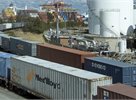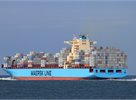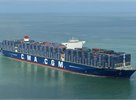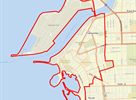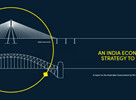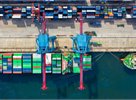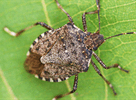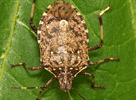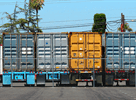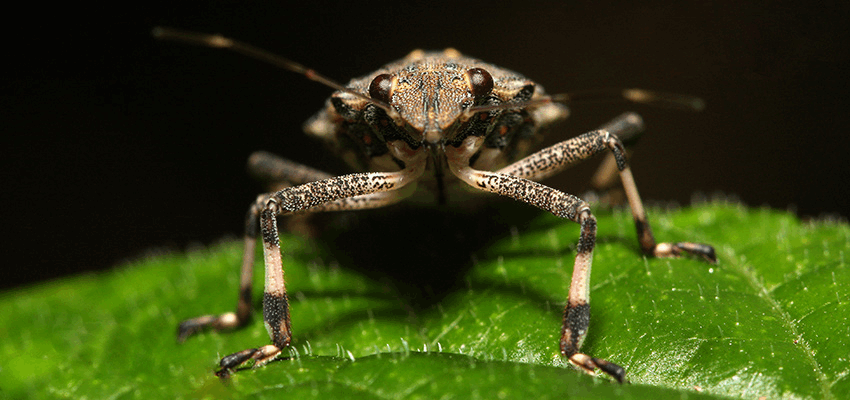
BMSB - Independent Biosecurity review provides hope for distressed importers
While essential in safeguarding Australia from a major biosecurity threat, international trade has been adversely impacted by the Brown Marmorated Stink Bug (BMSB) measures with importers reporting significant disruptions to their international supply chain operations, as well as increased costs of importing essential consumer goods.
In extreme instances, total cargo vessels and their loads are being turned away from Australian shores due to detection of the pest. Australia's peak trade alliance has indicated that millions of dollars are being paid by importers, customs brokers and freight forwarders as a result of the processes associated with the management of the BMSB.
Paul Zalai, director of the Freight & Trade Alliance (FTA) stated that for those that have been fortunate to have their cargo arrive, many have been adversely affected by the onshore delays caused by inadequate offshore treatment, failure in government systems and processes and a local industry inadequately prepared to deal with the growing onshore treatment task "The direct costs to importers imposed by stevedores for storage and in detention fees imposed by shipping lines for the late return of unpacked empty containers are rapidly escalating, adding to the costs associated with failure to meet supply demands."
Some freight forwarders have resorted to desperate and expensive measures by using a combination of sea cargo movements from origin and transhipping cargo at intermediary ports, using airfreight to land goods into Australia. While a legitimate practice, it is anticipated that it will only be a matter of time before cargo arriving by air faces similar biosecurity scrutiny as that by sea with the potential threat of choking major Australian international airports.
"The problem is not going to go away. Indications from the department is that by next season (September to April) we will be talking about treatment of goods from high risk continents rather than high risk countries, such is the spread of the pest throughout Europe, Asia and other parts of the world" Zalai said
The FTA had been calling for the Minister for Agriculture and Water Resources to commission a comprehensive independent review. Outlined below is the report of the findings of the review:
Inspector-General of Biosecurity brown marmorated stink bug report
28 May 2019
A report on brown marmorated stink bug (BMSB) risk management in Australia was issued today by Australia’s Inspector-General of Biosecurity, Dr Helen Scott-Orr. BMSB is an exotic pest that can infest and damage over 300 host plants, particularly temperate vegetables, fruits and nuts, and important agricultural crops such as apples, grapes, cotton, citrus, corn, soybeans and tomatoes. It has been spreading around the globe from its native north-east Asia, to North America and more recently through Europe. “BMSB could cause major losses for the agricultural industries of Australia and New Zealand and both countries are working to keep it out” Dr Scott-Orr said.
Dr Scott-Orr found that efforts by the Department of Agriculture and Water Resources to keep BMSB out in 2018–19 stretched Australia’s border biosecurity system close to breaking point and had severe impacts on sections of the shipping and importing industries. She noted that delays and extra costs in cargo ship unloading and cargo release from biosecurity control were significant but unavoidable due to the need to deal with large numbers of arriving BMSB.
These efforts appear to have prevented an incursion in 2018–19, although several border breaches were still under management and surveillance in April 2019. These responses imposed more resourcing demands on the department and on state government agencies. Extra targeted surveillance and risk mitigation near first ports of entry and cargo depots is needed in order to detect any further border breaches quickly.
Dr Scott-Orr noted that “the department is actively working to handle BMSB risks offshore and minimise disruption to movement of imported goods through the border. However, BMSB’s continued spread means that intensified efforts on a wider front will be needed to keep it out of Australia”. Due to further overseas spread of BMSB, in 2019–20 at least 15 per cent more incoming cargo will likely need BMSB intervention. More efforts and more resources will be needed to prevent the type of trade disruption that was seen in 2018–19.
Dr Scott-Orr emphasised that Australia remains at high risk of a BMSB incursion that could prove difficult or impossible to eradicate. She observed that “departmental resourcing is inadequate to meet the BMSB challenge. It is hard to see this changing unless biosecurity funding is improved by removing arbitrary staff caps for cost-recovered and critical assurance and oversight functions. Diversion of resources from other parts of the biosecurity system is not sustainable and will increasingly imperil Australia with risks of other severe pest or disease incursions”.
In Dr Scott-Orr’s considered opinion further strategic investment in both people and systems improvement, with surge capacity to handle biosecurity ‘emergencies’ while maintaining ongoing business, is essential into the foreseeable future.
The upcoming 2019-2020 season is to include an expanded list of target risk countries, with 23 added, taking the total number to 32.
The list is:
United States of America, Czech Republic, France, Canada, Georgia, Russia, Albania, Germany, Serbia, Andorra, Greece, Slovakia, Armenia, Hungary, Slovenia, Austria, Italy, Switzerland, Azerbaijan, Kosovo, Luxembourg, Belgium, Liechtenstein, Romania, Bosnia and Herzegovina, Macedonia, Spain, Bulgaria, Montenegro, Turkey, Croatia, Netherlands.
Japan is also to come under heightened vessel surveillance.
-
Australian Governments Modern Manufacturing Strategy
-
Boxship owners see 13-year high in charter rates as carriers hunt for tonnage
-
DP World and UNICEF to support COVID-19 vaccine distribution
-
Buoyant ocean carriers set to roll out peak season surcharges months early
-
Trade protectionism a barrier to the recovery of global economies, warns ICS
-
Outlook for large widebody looks chilly in a hot freighter conversion market
-
EVEN AS THE WORLD STRUGGLES
-
Maersk to launch carbon neutral vessel
-
STATE PREMIERS URGED TO INTERVENE ON CROSS-BORDER ISSUES
-
PORT BOTANY RAIL DUPLICATION FAST TRACKED
-
Covid vaccine: is air cargo ready for 'the biggest product launch in history?
-
Logistics protests as Melbourne lockdown puts the brakes on supply chains
-
Demand driving transpacific prices sky high, with Asia-Europe benefiting too
-
Carriers follow through with capacity disicpline and blank more sailings
-
Indonesian Free Trade Agreement - economic opportunity opens up
-
Department of Agriculture turns away import vessel
-
Good Compliance Update - December 2019
-
Scale-less weighing of containers for SOLAS VGM
-
Patrick East Swanson Terminal Melbourne - Reductions in night shift road R&D operations
-
Shippers brace for delays as coronavirus keeps China's factories closed
-
Coronavirus containment measures and the impact on your China cargo.
-
2019/2020 Stink bug seasonal requirements
-
BAF calculator may help ease uncertainty over looming IMO 2020 fuel rule
-
From 15 to 5 in just a few years - shippers' declining choice of container carriers
-
Government money to boost Queensland export
-
Freight forwarding scam warning
-
Marine insurance case study
-
Australian Ports infrastructure not keeping up with global trends
-
Truckies heartened by support to stopping port surcharges
-
Victorian Transport Association (VTA) State Conference 2019 - Making the case for inland rail
-
Protection from tariffs a feature of Australia and Hong Kong deal.
-
BMSB UPDATE 45 - WA Biosecurity Alert












